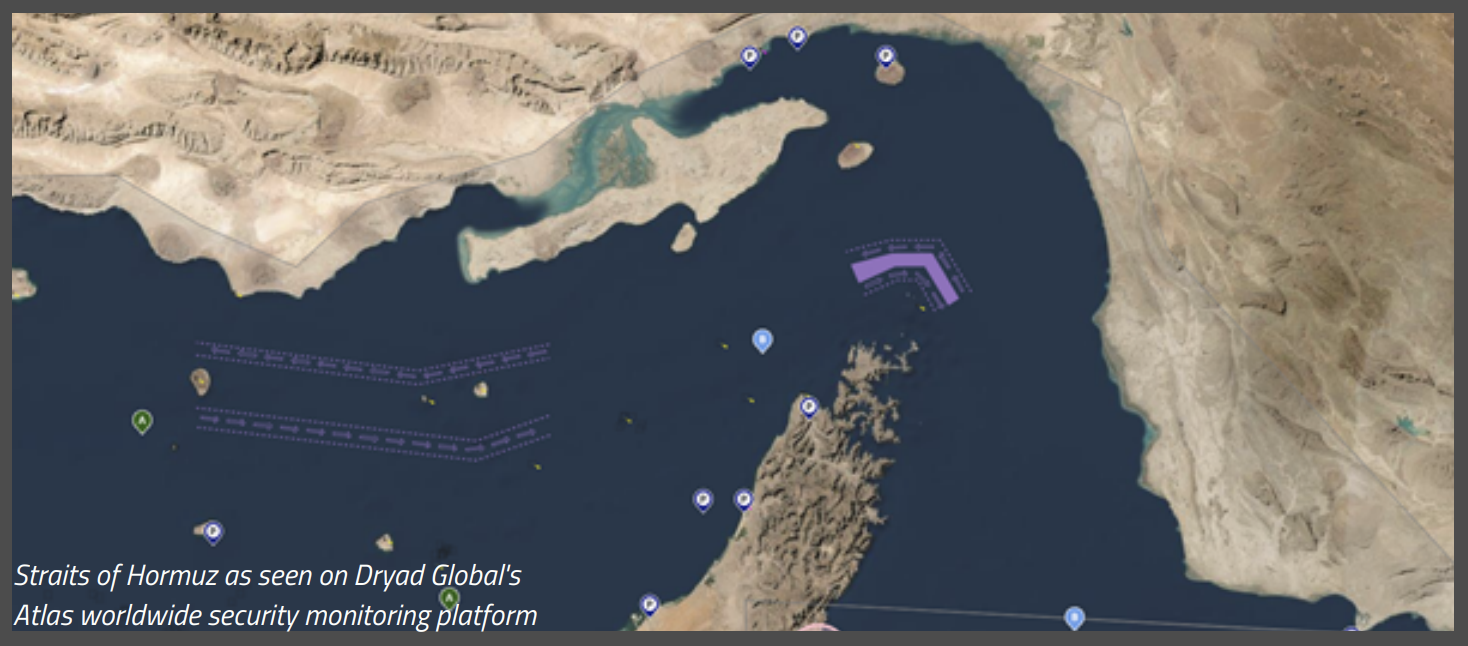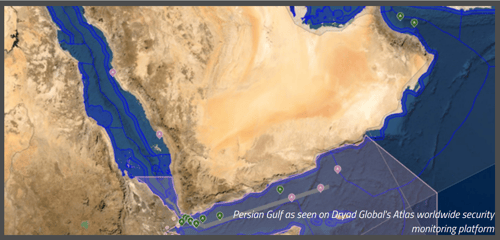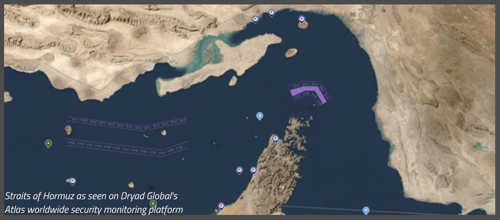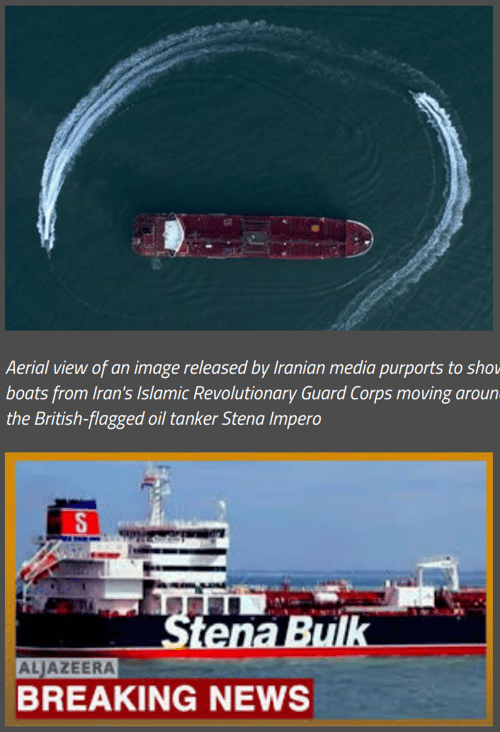13 min read
Will the Biden Presidency lead to greater maritime security in 2021 within the Persian Gulf?
By: James Greer on March 16, 2021 at 8:15 AM

Anticipating the Biden Administration’s Iran strategy is crucial for understanding future risks to maritime operators in the Persian Gulf.

Though the new U.S. Administration has officially offered to return to compliance with the Joint Comprehensive Plan of Action (JCPOA), otherwise known as the Iran Nuclear Deal, this is unlikely to happen anytime soon. Not only does Biden have insufficient bipartisan political capital to end the extraterritorial sanctions imposed by former President Trump, the original treaty also had many pitfalls that will take time to address and re-negotiate. While it is within the interests of all parties to return to the terms of the JCPOA, Iran will likely seek to leverage its aggrieved status in return for a lifting of sanctions. Moreover, Iran rejoining the JCPOA does not mean that it will cease its longer-term goal of removing U.S influence and forces from the region. Consequently, Iran is likely to engage in activities that will run contrary to U.S. interest’s region wide for some time yet.
Trends of Iranian maritime activities and strategies
Due to the geopolitical sensitivity of the region and the potential impact of any conflict, limited or otherwise, the tangible threat of vessel seizures and limpet mine attacks in the Persian Gulf is often misrepresented as being severe. The number of incidents, when compared to daily ship traffic in the region, suggests a very low probability of incident. Since May 2019, fewer than 20 vessel detentions and seizures have been attributed to Iranian activity in a region that sees some 33,000 transits annually. In comparison, in 2020 there were 76 actual and attempted attacks off the Gulf of Guinea. Moreover, no crew members captured by Iran were killed or kidnapped. Meanwhile, in the Gulf of Guinea, 138 crew were kidnapped in 2020. However, commercial entities trading within the Persian Gulf should remain mindful of the complex threat dynamics and how these may evolve.
Iran’s maritime actions are not a persistent and indiscriminate threat to wider commercial shipping. Instead, they are better understood as specifically targeted actions against states who are perceived by Iran to compromise its national interests. Examples of this include the detention of the British flagged Stena Impero, the seizure of a South Korean vessel in response to the South Korean government freezing Iranian financial assets, incidents involving three vessels from Saudi Arabia and the UAE who are engaged in a proxy war with Iran in Yemen, and a Liberian ship which was seized briefly because of connections to a Greek company that may have had previous dealings with Iran over oil shipments to Venezuela.

Despite Iran regularly threatening to blockade the Strait of Hormuz, such a strategy is highly unlikely. Any blockade would be fiscally ruinous, militarily impossible, and could alienate states sympathetic to Iran and opposed to America's presence in the region. Blockading the Straits of Hormuz would also undermine Iran’s strategy of portraying the U.S. as a belligerent force in the region. There would be an immediate and justifiable military and economic response from the U.S., its allies, and probably many non-aligned states, which would further impact the Iranian economy and likely drive domestic instability. It could also increase the speed that states in the Middle East normalise relations with Israel, particularly Saudi Arabia, which is very much against Iranian interests.

How conditions might improve
For maritime security conditions to improve in the Persian Gulf, the U.S. and Iran would need to return to compliance with the terms of the JCPOA. The Biden Administration has reiterated its intent to return to the deal once Iran returns to compliance, and has signified this through its removal of support for Saudi Arabia’s war in Yemen and its reinstatement of aid to the country. The U.S. though would likely have to make significant economic concessions, including substantial sanctions relief and potentially offering financial incentives for the removal of nuclear infrastructure. These terms are highly unlikely amidst the current fractious U.S. political climate. Moreover, to assure the Iranians that the U.S. will not withdraw from a new agreement if the Democrats lose the Presidency in 2024, any new deal will also need the support of at least some elements of the Republican establishment, a difficult proposition as most Republican voters still support former President Trump.
How to mitigate the risk
There are several precautions that vessels operating in the Persian Gulf could take. Roust cyber defenses are imperative to protect against the cyber-phishing, GPS spoofing, and jamming that Iran has used to cause vessels to accidentally travel into its territorial waters, where they are captured under legally justifiable pretences. While some might recommend the use of unarmed security advisors, Dryad Global does not. Any personnel not actively involved in the operation of the vessel are at risk of increased scrutiny and suspicion and would increase the risk of vessel and crew detention. Iran has previously used the auspices of espionage to justify spurious detentions of foreign nationals, the presence of unarmed advisors would significantly increase this risk, whilst offering limited mitigation. Given the targeting of specifically flagged vessels by Iran, operators could consider re-flagging vessels to a state that has neutral relations with Iran. Whilst convoluted and logistically cumbersome, the longer-term benefits of mitigated trade risk may justify the means. Although the risks from more traditional forms of maritime crime remain low, operators in the Persian Gulf should continue to be mindful of the potential for such activity to occur and adhere to industry standard mitigation, including the conduct of impartial risk assessments.
Source: Dryad Global Annual Report 2021
Related Posts
Trump's Final Offshore Lease Shows Gulf of..
The Trump administration’s final sale of oil and gas leases in the Gulf of Mexico generated nearly..
Iranian hostility: Forceful diplomacy or reckless..
Anticipating the Biden Administration’s Iran strategy is crucial for understanding future risks for..
China v Russia v America: is 2021 the year..
It may just be coincidence that Russia was piling military pressure on Ukraine last week at the..



